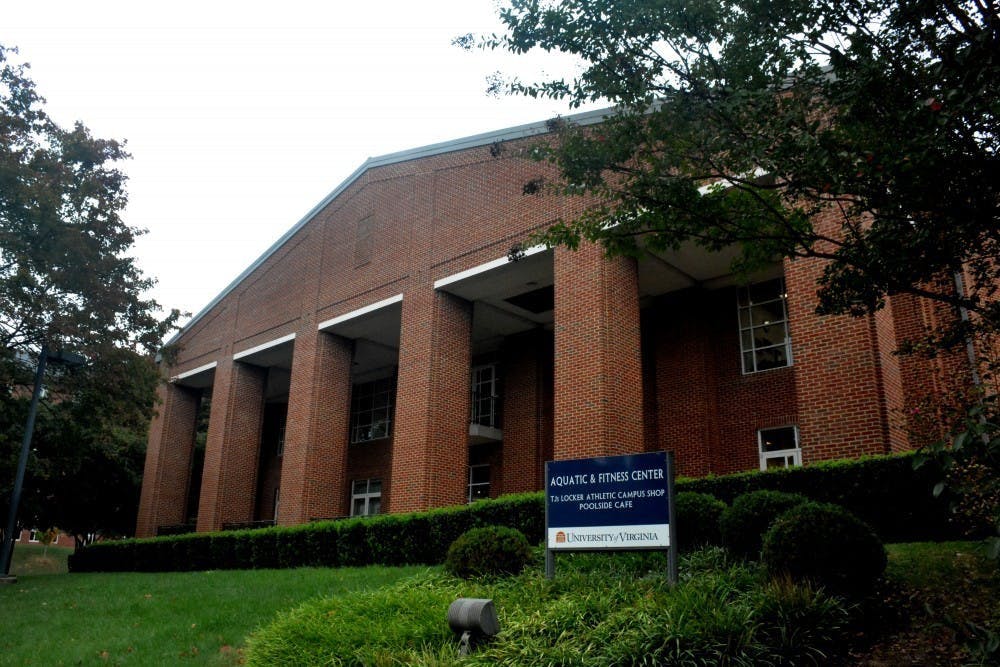As University students get into the swing of the semester, many of us are attempting to fulfill our New Year’s resolutions. One of the most common of these resolutions is getting in shape, which in turn leads to increased gym attendance in the United States during the month of January. However, for those of us who attempt to make good on this resolution and decide to drive from our homes to the gym, a rude awakening awaits in the form of mandatory parking fees at the University’s gym facilities.
Currently, North Grounds Recreation Center, Aquatic & Fitness Center and Slaughter Recreation Center all charge for parking in their lots from 7:30 a.m. to 5 p.m., though North Grounds only mandates this Monday through Friday. In order to access Memorial Gymnasium, it is recommended that you find street parking or pay to park in the Culbreth or Central Grounds Parking Garage. While these fees may strike one initially as perfectly reasonable, in reality, the current parking policy is absurd and presents a serious inconvenience for many members of the student body.
The first issue with these parking fees is that many students are simply unaware that they exist. Often, individuals discover that the gym parking lots charge for parking when they discover a parking ticket on their dashboard after leaving the gym, or in my colleague Katie McCracken’s case, hurrying back from class. I became aware of the parking fees this year when my roommate received a parking ticket. And while these spots should clearly be reserved for gym patrons, the fact that even student journalists were initially unaware of the need to pay for parking at the gym indicates that the University has done a poor job communicating this policy to the community.
Perhaps this failure to adequately communicate the policy is indicative of how absurd it is to charge for parking in the first place. Full-time students already pay for their gym memberships through mandatory student fees. Therefore, by levying parking fees on students who have already been compelled to pay for a gym membership, they are essentially levying a tax on students that often need to drive in order to access the facility.
Moreover, many students who choose to drive do so for good reason and are unfairly penalized by the University. Some students have irregular schedules or work during the evenings, so having access to the gym during the day is essential. Also, some individuals only have time to go in between classes during the day and don’t have time to wait around for a bus. Lastly, the most affordable housing is often located farther away from central Grounds, so it takes longer for many of these students to get to the gym on the bus.
This is not to say that all, or even most, students who go to the gym need to drive or go during the day, but it is ridiculous that the University penalizes those who choose the most convenient transportation and time for them. All these fees do is dissuade individuals who need to drive from utilizing workout spaces that they have already been forced to pay for.
These adverse policies also have a serious impact on the student workers at gyms. Some students who have to get up extremely early to start their shifts before the buses start running or have to leave quickly in order to make it to class during the day often have to drive themselves and pay for parking at the gym. And while the parking fees are not too substantial for a single hour, workers who have to stay there for several hours have to spend a sizable chunk of their paychecks for parking.
Some arguments against fully removing metered parking include that the gym’s parking lot would get filled too quickly and that individuals who are not using the gym would try to park in these lots. While these are serious concerns, they are largely unfounded and can be easily remedied. Many students wait to go to the gym until after 5 p.m. when parking is free. So abolishing parking fees would actually ease congestion by allowing students to go during the time that best suits them. In order to stop individuals from parking there and not using the gym, it would still be possible to maintain some sort of registration system that would be able to keep track of the cars in the lot and not charge any fees.
Though this may seem like a benign issue, those who are attempting to achieve their resolutions and must drive to the gym during the day will likely see the cost of parking fees add up in their bank accounts. With an endowment of $9.6 billion, I think the University can afford to stop fleecing students who need to drive to the gym during the day. The University should be doing all it can to encourage students to engage in a healthy lifestyle, and by forcing students to pay for accessing the gym in the most convenient way possible, it is not doing that. The University must stop levying these fees immediately — their students will be happier and healthier because of it.
Jacob Asch is an Opinion Columnist for The Cavalier Daily. He can be reached at opinion@cavalierdaily.com.







